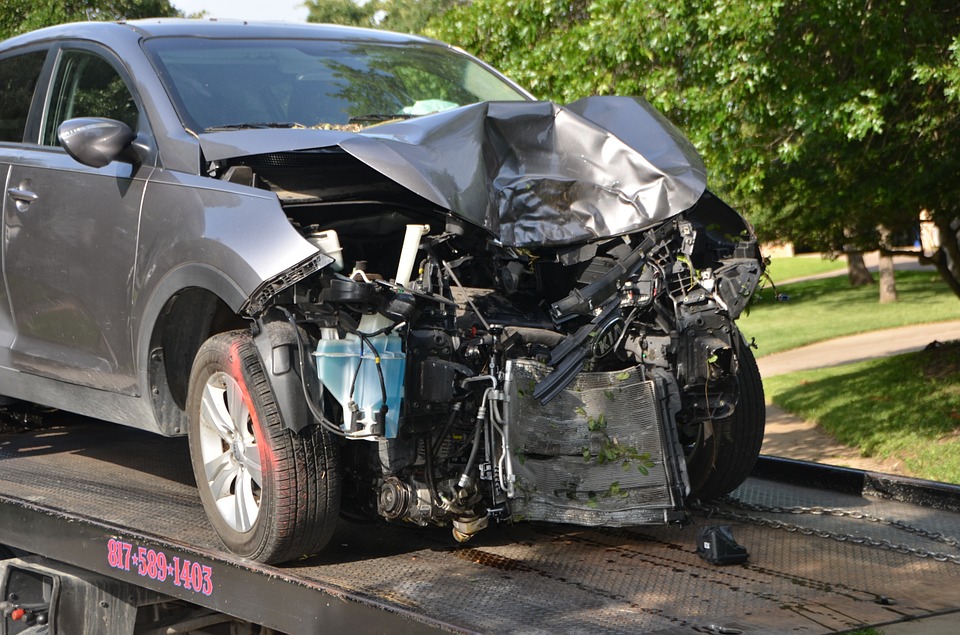A traumatic brain injury (TBI) is defined as an injury that interrupts the normal function of the brain and is caused by a bump, blow or jolt to the head.

(Pixabay / gdbaker)
Mild TBIs are commonly called concussions, and they are marked by a brief change in consciousness or mental status. More severe TBIs could lead to long-term symptoms to include:
- Prolonged loss of consciousness
- Persistent headache
- Convulsions or seizures
- Interrupted sleep patterns
- Weakness or numbness
- Loss of coordination
- Memory loss
- Confusion
- Agitation or anger
- Slurred speech
- Depression
- Difficulty concentrating
According to the Centers for Disease Control, motor vehicle accidents cause 20 percent of all TBI-related hospitalizations. They are also the leading cause of TBI-related deaths for people ages 15-34.
How do motor vehicle accidents cause TBIs?
There are both closed and open brain injuries. When it comes to automobile accidents, closed brain injuries are much more common. These injuries involve a blunt impact or blow to the head. An example would be that your head is thrown forward or to the side, striking the steering wheel or windshield. At that point, your head may stop moving, but your brain will continue its motion, crashing against the hard inner bone of your skull. This can cause your brain to become bruised (contusion) or to bleed (brain hemorrhage). It can also cause your brain to swell and the tissues to become compressed.
Open brain injuries occur when the skull is penetrated by a sharp instrument. This can cause the brain to tear—if not from the instrument than from skull fragments. It can also leave you vulnerable to other injuries and infection. While open brain injuries are less common in car crashes, they do occur, often when there are sharp flying objects as a result of the crash or when people are thrown from the car.
Here’s a look at a few specific types of brain injuries that are commonly caused by car accidents:
- Concussion: A concussion occurs when the brain receives trauma from impact or sudden momentum or change of movement. Note that the head does not actually have to strike something for a concussion to occur. If your head is jolted abruptly, the brain hitting the skull can cause the concussion. The effects of concussion are usually temporary.
- Contusion: Contusions are caused by impact to the head and cause bruising on the brain. These injuries may be referred to as “coup” (brain injured directly under the area of impact) and “contrecoup” (brain injured on the opposite side of the impact).
- Diffuse axonal injury (DAI): This is one of the most devastating forms of TBI. DAI occurs when the brain moves back and forth rapidly inside the skull, tearing and stretching the nerves at the cellular level. These cells are responsible for transmitting information throughout the brain, so when they are damaged, the person may slip into a coma.
- Hematoma: A hematoma is a mass of blood in the brain caused by a broken blood vessel. When a blood vessel breaks, the body starts to clot. This is generally a good thing because it stops the bleeding, but it is problematic when it happens near the brain because the growing clot may actually compress the brain. The location of the clot can affect the severity of the hematoma. If the clot forms between the brain and the dura (lining of the brain), it is known as a subdural hematoma and is among the most serious types of head injuries. With a subdural hematoma, blood can flood into the brain area, compressing brain tissue and often leading to death.
How do I know if I have a brain injury?
The tricky thing about traumatic brain injury is that the symptoms can be very subtle. They may not show up until days or even weeks after the injury occurs.
After a car accident, it is always best to see a doctor as soon as possible. They can examine you, ask important screening questions, and order medical tests if necessary, such as a CT scan to detect brain swelling or bleeding. In many cases, early detection and intervention are critical for decreasing risks for long-term problems from brain injuries.
How do I deal with expenses from my traumatic brain injury?
Though many brain injuries are mild and clear up quickly, others drag on for months or years, resulting in missed work, inability to drive, countless medical appointments and ongoing rehabilitation. In some cases, they may even require full-time care for life. We frequently see the crippling financial burdens these injuries place on people, and it can be extremely stressful for both the patient and their family.
A skilled traumatic brain injury attorney can help you get the financial compensation that you deserve to deal with these injuries. In the case of an auto accident, your injuries may have been caused by the fault of another driver or even the malfunction of your car due to manufacturing defects. It’s important to remember that the other party’s insurance company will do all in their power to pay as little as possible, including offering you a settlement that may not adequately cover the ongoing costs of your medical care.
If you received a traumatic brain injury in the Las Vegas area, make sure that you are enlisting the help of an experienced Las Vegas traumatic brain injury attorney. They can accurately assess the costs of your ongoing rehabilitation and care and fight for the full range of the benefits that you deserve. The physical and mental stresses of TBI are taxing enough without the added burden of financial stresses caused by the injury.
Video

